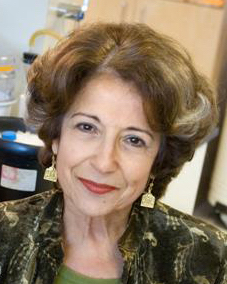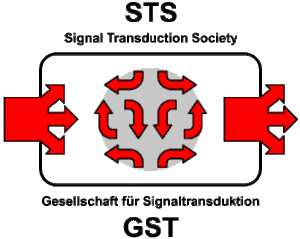 The American Society for Cell Biology (ASCB) is honoring Mina Bissell, distinguished scientist in the Biological Systems & Engineering Division, for her lifetime contributions to cell biology. In recognition of her key discovery that the role of the tumor microenvironment plays a part in the development of breast cancer, ASCB will confer their highest scientific honor, the E.B. Wilson Medal, upon Bissell at their Annual Meeting in San Francisco this December. This latest accolade comes just months after Bissell received the 2015 STS/CSS Honorary Medal from the Signal Transduction Society (STS) and the STS Journal Cell Communication and Signaling (CSS) last November in Weimar, Germany, as well as the Ernst Bertner Memorial Award, MD Anderson Cancer Center’s highest cancer research award.
The American Society for Cell Biology (ASCB) is honoring Mina Bissell, distinguished scientist in the Biological Systems & Engineering Division, for her lifetime contributions to cell biology. In recognition of her key discovery that the role of the tumor microenvironment plays a part in the development of breast cancer, ASCB will confer their highest scientific honor, the E.B. Wilson Medal, upon Bissell at their Annual Meeting in San Francisco this December. This latest accolade comes just months after Bissell received the 2015 STS/CSS Honorary Medal from the Signal Transduction Society (STS) and the STS Journal Cell Communication and Signaling (CSS) last November in Weimar, Germany, as well as the Ernst Bertner Memorial Award, MD Anderson Cancer Center’s highest cancer research award.
The STS/CSS Honorary Medal award was established in 2010 to honor outstanding scientists in the fields of cell biology, biomedicine or bioinformatics,  who have made landmark contributions in basic and/or applied signal transduction research. The first two winners were giants of the signaling field, Tony Pawson and Tony Hunter. Bissell is the 6th recipient and the first woman to receive the honor. Bissell’s work to prove the importance of context in cell biology certainly meets these criteria. She explores the significance of extracellular matrix (ECM) signaling, dominance of the microenvironment in determining cell behavior, and importance of organ architecture in regulation of gene expression in normal and malignant cells.
who have made landmark contributions in basic and/or applied signal transduction research. The first two winners were giants of the signaling field, Tony Pawson and Tony Hunter. Bissell is the 6th recipient and the first woman to receive the honor. Bissell’s work to prove the importance of context in cell biology certainly meets these criteria. She explores the significance of extracellular matrix (ECM) signaling, dominance of the microenvironment in determining cell behavior, and importance of organ architecture in regulation of gene expression in normal and malignant cells.
 The ASCB is recognizing Bissell for her groundbreaking work to show that a cell’s physical context matters, specifically with regard to the role the ECM plays in breast tissue remodeling and breast cancer progression. Named for Edmund Beecher Wilson, the pioneering American zoologist and geneticist who is commonly regarded as the first cell biologist, the E.B. Wilson Medal is given to scientists for far-reaching contributions to cell biology over a lifetime in science. In naming Bissell as the recipient of this award, the ASCB cited her many accomplishments, alluded to some of the controversy sparked by her findings, and described some of her advancements, including the use of 3D cell culture to replicate the complicated spatial arrangements naturally found in tissue. Bissell has been elected to almost all honorary Academies in the US including the National Academy of Sciences, National Academy of Medicine, American Philosophical Society, the American Academy for Arts and Sciences and more. Read more about Bissell and her myriad contributions, as well as praise from other scientists in her field, in the ASCB award announcement.
The ASCB is recognizing Bissell for her groundbreaking work to show that a cell’s physical context matters, specifically with regard to the role the ECM plays in breast tissue remodeling and breast cancer progression. Named for Edmund Beecher Wilson, the pioneering American zoologist and geneticist who is commonly regarded as the first cell biologist, the E.B. Wilson Medal is given to scientists for far-reaching contributions to cell biology over a lifetime in science. In naming Bissell as the recipient of this award, the ASCB cited her many accomplishments, alluded to some of the controversy sparked by her findings, and described some of her advancements, including the use of 3D cell culture to replicate the complicated spatial arrangements naturally found in tissue. Bissell has been elected to almost all honorary Academies in the US including the National Academy of Sciences, National Academy of Medicine, American Philosophical Society, the American Academy for Arts and Sciences and more. Read more about Bissell and her myriad contributions, as well as praise from other scientists in her field, in the ASCB award announcement.



